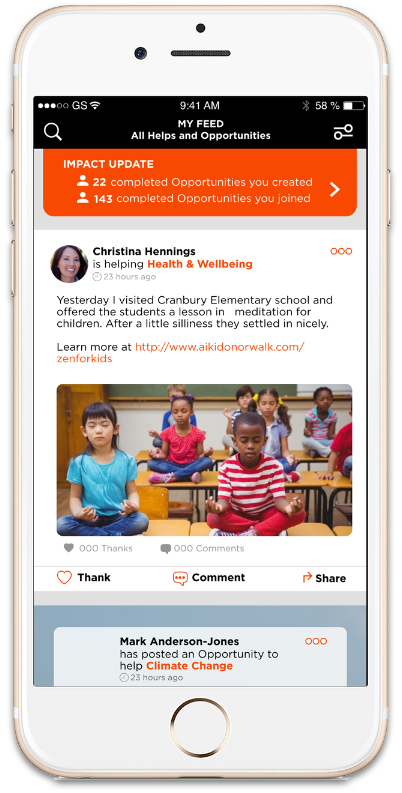The Health Benefits of Altruism
“You don’t have to be a billionaire to believe you can make a difference. Give your resources to a charity and volunteer in your community.”
Even the smallest acts of kindness can make a lasting positive impact on our families, our communities, our world, and perhaps most importantly, ourselves. The reason is simple: human beings are wired to feel good when they do good. Ever had a rush of gratitude or “all the feels” after doing something nice for someone else? It’s called the “helper’s high,” and it’s kind of like a runner’s high, or a “I just flirted with someone I’m crushing on” high.
When you help someone else, your brain is flooded with endorphins, the same neuropeptides that give you a rush after you finish a run or thirty minutes on the elliptical. According to the American Psychological Association, adults over age 50 who volunteered on a regular basis were less likely to develop high blood pressure than non-volunteers. More endorphins = a happier, longer life.
ThatHelps, the new helping social network, is literally a one-stop endorphin festival. The app offers opportunities to find and support reputable causes that align with your interests, plus a community of people who care about the same things as you.
There’s one more way ThatHelps keeps the feels going: the “thanks” button. The app rewards you for showing off your good deeds, whether it’s sharing a picture of the litter you just recycled or a link to support your 5k charity fundraiser. No help is too small or insignificant. Studies show people are motivated by positive examples, so show off your good deeds! It’s not bragging, it’s helping.


